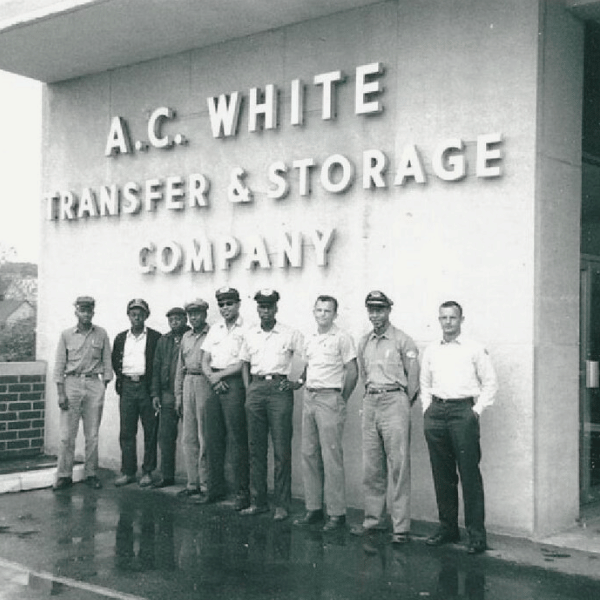Coordinating a corporate move in Georgia requires more than just moving desks and boxes—it requires clear communication, careful planning, and minimal disruption to day-to-day business. From choosing the right timeline to ensuring employee needs are met, every step plays a role in a smooth transition. With the right approach, your team can stay productive and focused while everything falls into place. In this guide, A.C. White Relocations shares essential planning steps to help simplify your corporate move and set your business up for success in its new location.
Identifying the Need for Relocation
Deciding whether your company needs to relocate means looking at key factors that affect current operations and future growth. One of the biggest considerations is space requirements. As businesses grow, they often face overcrowding, which can hurt productivity. If your Georgia office feels cramped and stifling, it might be time to move to a larger space that fosters creativity and allows room to expand.
Another important factor is market access. Being closer to your key markets or customers can open up new revenue opportunities. For example, relocating to a busy urban area with high foot traffic could boost sales and increase your brand’s visibility.
Cost efficiency is also a major consideration. High rent prices in urban centers can strain budgets, making it worth exploring locations just outside these areas. Many companies find that moving a few miles away can significantly reduce costs while staying close to essential amenities.
Talent acquisition is another critical reason companies relocate. Being near tech hubs or creative industries can make it easier to attract skilled workers.
By evaluating factors like space, market access, costs, and talent acquisition, you’ll be better prepared to determine if relocation is the right step for your company’s growth.
Building Your Relocation Team
When relocating a business, having a solid and well-rounded team is important. This team should consist of individuals who understand their respective roles and collaborate effectively to navigate the complexities of moving an entire organization. It’s about strategic planning that minimizes downtime and maximizes efficiency.
Assembling Core Members
Start by appointing a Project Manager—this person will lead the process. A strong project manager handles logistics, coordinates communication across departments, and keeps everything on schedule. Think of them as conductors, ensuring all parts of the project work together seamlessly. Their experience with large-scale projects will be crucial for handling unexpected challenges.
Once you’ve secured a project manager, involve Department Heads from across the company. These leaders understand their teams’ needs and can provide insight into what resources or spaces their departments require in the new location. Including them ensures every department’s concerns are addressed during the move.
Given the importance of technology in any workplace, it’s critical to have IT Specialists on the team. They will manage the setup of networks, servers, and security systems in the new space, ensuring employees can start working without technical interruptions.
You’ll also need HR Representatives to support the team. HR is the link between management and employees, addressing staff concerns during the move. They help reassure employees that their needs are being considered and can create communication plans to outline what everyone should expect during and after the transition.
For complex issues, involving External Consultants can be incredibly helpful. These specialists offer guidance on logistics or compliance that may fall outside your team’s expertise. Their fresh perspective can highlight potential problems and provide tailored solutions to ensure a smoother process.
Carefully assembling your relocation team with the right mix of skills and perspectives will set the stage for a successful move. This approach fosters collaboration and ensures you’re prepared to tackle financial and logistical challenges, paving the way for a smooth transition.
Budgeting and Timeline
Creating a solid budget and timeline is essential for a successful corporate move. It’s not just about numbers or dates—it’s about laying the groundwork for a smooth transition. Start by setting a clear budget that includes all key expenses, even the smaller ones that are easily overlooked. Proper financial planning and a well-structured timeline are critical for managing this complex process.
Defining the Budget
First, consider the initial costs involved in your Georgia move. These include expenses for your new office space, whether renting or buying, and hiring reliable movers to ensure everything goes smoothly. You should also factor in renovation costs, as your new space might need work before it’s ready. Overlooking these upfront expenses could leave you scrambling later.
It’s also important to prepare for potential hidden fees. These might include business licensing costs that can be overlooked during the move. To avoid surprises, adding a buffer of around 15% of your total budget is a good idea for unexpected expenses.
Technology Upgrades
One common area where companies often overlook costs is technology upgrades. Setting up an efficient office requires investing in updated tech, like computers, network infrastructure, and software licenses. These upgrades are essential because outdated technology can seriously hurt productivity.
Once your budget is complete and prepared for unexpected expenses, the next step is to create a clear timeline to keep the moving process organized and efficient.
Setting the Timeline
Start your pre-move planning at least six months before your Georgia move. Use this time to visit potential new locations, finalize lease agreements, and inform employees about the upcoming relocation. Keeping your team in the loop helps maintain morale and ensures a smoother transition.
Next is the moving phase. Schedule the move over a weekend when operations are slower or paused. This reduces workflow disruptions and minimizes stress for employees during the transition.
Remember, moving day isn’t the end—it’s the start of the post-move evaluation. Spend at least a month after the move addressing issues that may come up. Expect adjustments, repairs, or tweaks as everyone settles in. Use this time to finalize setups and fix any problems with technology or workspace arrangements.
Focusing on budgeting and scheduling can help you navigate logistical challenges effectively and set the stage for improved operations. Now, consider key factors like transportation and the equipment you’ll need for a successful move.
Logistics and Equipment
Efficient logistics is key to a successful corporate relocation. From planning the move to getting your operations running smoothly in the new location, everything depends on careful management of inventory and service providers.
Inventory Management
The first step in logistics is creating an Inventory List. This should be a detailed record of every item you plan to move, from office furniture to computers and fragile technology. It's important to track what you have and note any items that need special handling, like fragile materials or important files requiring extra security. Organizing your inventory by size or sensitivity can make the moving process smoother and avoid unnecessary confusion on moving day.
An itemized list has another benefit—it helps you identify items that may be better to replace or upgrade instead of moving. This leads to the Equipment Audit. Take a closer look at older equipment. Does it make sense to move that aging printer, or would upgrading to newer technology save you time and money in the long run? Often, investing in more efficient systems can reduce costs and improve operations.
Vendor Selection
Next is Vendor Selection, a step as important as managing your inventory. When choosing Moving Companies, focus on those with experience in corporate relocations. Specialized movers understand the unique requirements of business equipment and are less likely to cause damage during transit. Take the time to read online reviews and compare multiple quotes. This helps you get competitive pricing and gives insight into each provider’s reliability.
Equally crucial is selecting Equipment Providers for your new Georgia office setup. Don’t wait until after the move to source essential items like desks, chairs, IT infrastructure, or kitchen supplies. Start working with vendors early to ensure everything arrives on time and without issues. Planning for potential delays will make the transition much easier.
Investing time in thorough vendor selection can save your company significant trouble later. Many businesses have avoided major headaches by carefully vetting their vendors, smoothing the relocation process.
Managing the Move Day
On moving day, coordination is key, and every detail matters. To keep things running smoothly, make sure everyone knows their specific responsibilities. Assign roles ahead so each person knows what to focus on—whether it’s packing, managing logistics with the movers, or setting up technology in the new space. Clear roles help prevent confusion and avoid unnecessary delays.
Coordinating the Move
Regular check-ins are essential during the loading and transport to keep everything organized. If you're managing the process, stay close to the moving team and communicate clearly. This isn’t just about ensuring items are handled properly—it’s also about keeping morale high. Small actions, like offering water or checking in with a positive attitude, can create a cooperative atmosphere that keeps things running smoothly.
On move-in day, arrive at the new location early to inspect everything. Check for potential issues, such as utility delays or areas needing cleaning or organizing. Catching problems early allows you to address them quickly and avoid delays that could disrupt the entire process.
As the move wraps up, strong communication will remain key as employees settle into the new space and adjust to their roles in the updated environment.
Employee Transition and Integration
The human side of corporate relocation can be the most challenging. Supporting employees adjusting to a new workplace is key to making the transition smooth. This process begins before the move, focusing on clear communication and building connections to reduce anxiety and encourage excitement about the change.
Pre-Move Communication
Regular updates are crucial for employees during times of uncertainty. By sharing consistent information about moving dates, logistics, and what to expect, organizations can reduce fears and prevent misinformation. Creating an open channel for questions and hosting Q&A sessions is essential. These sessions provide a chance to address concerns directly, whether about parking or how the new space will improve their workday.
Onboarding at New Location
Starting a new job can be intimidating for many people, especially on the first day in a new office. That’s why organizing an orientation program is so important. A guided tour of the workplace helps employees familiarize themselves with key facilities like restrooms, kitchens, and meeting rooms, reducing any initial discomfort. A casual setting also encourages questions and allows employees to interact naturally with their new colleagues.
You might also consider providing welcome kits with essentials like stationery and company-branded items. This small gesture helps new employees feel appreciated and gives them a practical connection to their workspace as they settle in.
Keeping employees comfortable and informed is key to maintaining morale. Providing ongoing support and tailoring adjustments to their needs can make the shift to a new environment a positive experience. Taking these steps during the transition period can greatly impact long-term satisfaction and productivity.
Corporate relocations are common in today’s fast-moving business world. As companies grow, employees often need to relocate for work. While this can bring exciting opportunities, it can also be a stressful process. By following the tips above, employers and employees can work together to make relocations smoother. Providing proper support, clear communication, and helpful resources ensures employees feel prepared and supported during this big transition. With good planning and execution, relocations can lead to motivated employees ready to tackle new challenges in their new environment. Contact A.C. White Relocations for professional and reliable Georgia relocation services. They are professionals who specialize in corporate moves and can provide the knowledge and resources needed to make any relocation a success.







